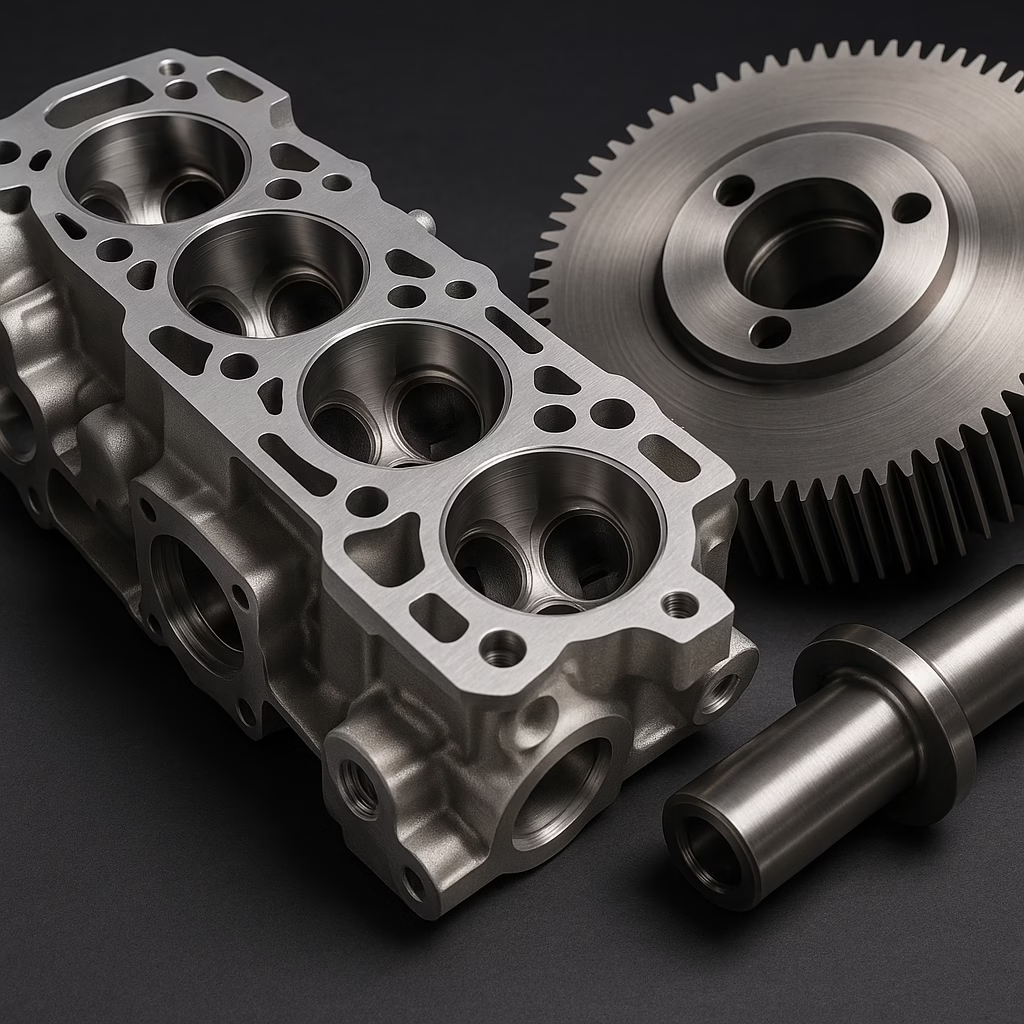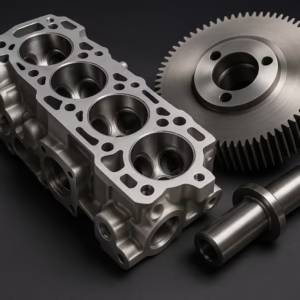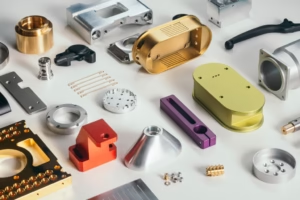CNC Machining in the Automotive Industry

CNC Machining in the Automotive Industry In today’s automotive industry, precision and reliability are non-negotiable. Whether in traditional internal combustion vehicles or modern electric cars, CNC machining plays a vital role in manufacturing high-performance components with tight tolerances, complex geometries, and consistent quality. In this article, we’ll explore key automotive components that depend on CNC machining and why this technology is indispensable to OEMs, Tier 1 suppliers, and the custom aftermarket world. 1. CNC Machined Engine Components One of the most critical areas for CNC application is the engine system. From the engine block to cylinder heads, intake manifolds, and exhaust components, CNC machining enables manufacturers to: Achieve precise combustion chamber geometry Maintain perfect flatness and alignment Use materials like aluminum or high-grade steel with complex internal features CNC ensures that these components not only fit perfectly but also perform reliably under extreme temperatures and pressures. 2. Transmission & Gearbox Components Gearbox housings, clutch covers, and differential cases are among the most geometry-sensitive parts in a vehicle. CNC milling and turning allow for: Precise gear alignment surfaces Complex cavity milling for oil flow and cooling High-strength aluminum or cast iron machining with ±0.005mm tolerances These components must endure rotational stress, torque transfer, and vibration—making CNC precision essential. 3. Electric Vehicle (EV) Parts As the automotive industry shifts to electric mobility, CNC machining is increasingly applied in EV components such as: Battery housingsand trays Cooling platesfor thermal management Electric motor housingsand inverter enclosures These parts often require lightweight but durable materials, such as aluminum alloys, and complex multi-axis machining to meet tight installation and safety specifications. 4. Chassis, Suspension, and Structural Parts Suspension systems demand both lightweight and high-strength components, where CNC machining delivers consistent quality in: Control arms Steering knuckles Shock absorber mounts Custom brackets and bushings CNC allows for high-volume production of structural parts with repeatable strength, dimensional stability, and accurate hole positioning, which is crucial for safety and comfort. 5. Prototyping & Custom Aftermarket Parts Beyond mass production, CNC machining is also key for: Rapid prototypingof new vehicle components Low-volume, high-performance aftermarket partsfor motorsports or customization Reverse-engineered replacement partsfor vintage or rare models It offers the flexibility, speed, and repeatability needed to iterate designs quickly while maintaining functional integrity. Why CNC Machining Is the Ideal Process for Automotive Parts Tight tolerancesfor moving assemblies and sealing surfaces Material flexibility– compatible with aluminum, titanium, stainless steel, and composites Repeatability– ensuring consistent quality in every unit Scalability– from prototypes to serial production With these benefits, CNC machining has become a backbone of modern automotive manufacturing. Looking for a CNC Partner for Automotive Parts? At Jiangxi Prototek Imp&Exp Co., Ltd, we specialize in CNC milling, turning, and drilling for automotive components. Our ISO 9001-certified processes, multi-axis machining centers, and experienced engineering team ensure: Fast prototyping and sampling Medium-to-high volume production Full inspection and quality reports Global shipping and engineering support Contact us today to discuss your automotive CNC part needs—or upload your drawing for a fast quote. If you have any needs, contact us via email at Lynnyao@prototekparts.com or phone: +86-0792-86372550 Tags: Social Network: Recently Posts Online Help! +(86) 0791-86372550 WANT TO DISCUSS IN DETAIL Contact Our Consultant Now CONTACT NOW



